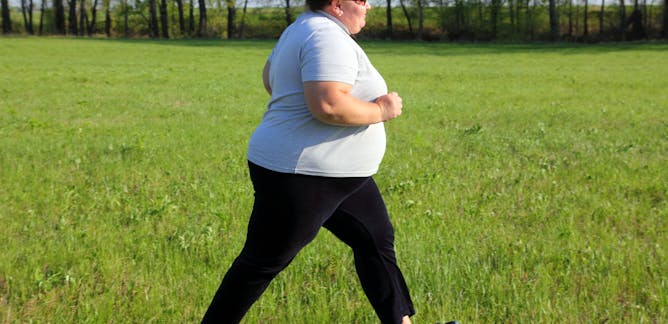|
|
|
Your weekly dose of evidence
|
|
To manage their condition, all people with type 1 diabetes and many people with type 2 diabetes have to measure their glucose levels regularly. Traditionally this has been done by pricking their finger, drawing a drop of blood, and testing it in a small device.
But in recent years, a less invasive technology, in the form of a patch worn on your arm, has become available. This nifty device, called a flash glucose monitoring system, allows the person wearing it to scan their smartphone over the patch and obtain a detailed reading of their glucose levels.
We’ve seen people like AFL footballers and British PM Theresa May wearing them. But the problem is, they’re not yet subsidised by the government, and out-of-pocket they will set someone back A$2,400 a year. Maria Craig argues the government should fund flash glucose monitoring. Anything that makes managing diabetes easier is going to lead to fewer complications from the disease. So the benefit would be felt across the health system – not only
by everyday Australians living with diabetes.
|
Phoebe Roth
Assistant Editor, Health+Medicine
|

|
|
|
|

AFL player Paddy McCartin, who has type 1 diabetes, wears a flash glucose monitoring device on his arm.
Julian Smith/AAP
Maria Craig, UNSW
A small patch allows people with diabetes to measure their blood glucose levels easily. But this technology isn't currently subsidised, so many everyday Australians who could benefit are missing out.
|
From the archives: managing diabetes
|

Sue Lynn Lau, Western Sydney University; Ahmed Hussein, Western Sydney University
The holy month of Ramadan begins on Sunday night. This can present a challenge for Muslim people with type 2 diabetes who want to fast but can't necessarily do so safely.
| |

Merlin Thomas, Baker Heart and Diabetes Institute
To keep your body functioning, glucose must always be present in your blood. It’s as important as oxygen in the air you breathe. The brain can only function for a few minutes without either before it stops…
|

Chris Proud, South Australian Health & Medical Research Institute; Grant Brinkworth, CSIRO; Manny Noakes, CSIRO
For decades, a low fat and sugar free diet were key to controlling type 2 diabetes. Now, new data shows a diet high in protein and healthy fats has better outcomes for the disease.
| |

Allison Sigmund, Western Sydney University; Sue Lynn Lau, Western Sydney University; Susan Hendon, Western Sydney University
Gestational diabetes should be seen as an opportunity to identify families at higher risk of metabolic problems and take action.
|
|
|
Expert answers to serious, weird and wacky questions
|

Paige Brooker, The University of Queensland; Michael Leveritt, The University of Queensland; Neil King, Queensland University of Technology; Sjaan Gomersall, The University of Queensland
Our body burns more fat when we exercise before breakfast, but studies haven't found that means we lose more weight over time.
| |

Michelle Ryan, Western Sydney University
Water crystals help drought-proof plants. But these tiny polymers are leaving gardeners concerned.
|

Brooke Simmons, Lancaster University
Gravity exists because the universe is full of 'stuff' – here's how it came to be.
| |

Mark Hemer, CSIRO
Waves occur in all sorts of places, and it's possible that waves you might see breaking at the beach are at the end of a very long journey.
|
|
|
Top picks from the week
|

More women would favour the pill over less reliable forms of contraception if it was available without prescription.
Image Point Fr/Shutterstock
Bonny Parkinson, Macquarie University; Mutsa Pamela Gumbie, Macquarie University
New modelling shows skipping the need for a doctors' prescription and going straight to a pharmacist for the pill could save the health system A$96 million a year and improve women's health outcomes.
|

Many victims of school bullying suffer mental illness later in life.
from shutterstock.com
Sally Varnham, University of Technology Sydney
Schools have a legal obligation to act on bullying behaviour of pupils and provide support for both the victim and the perpetrator.
|

The breastfeeding relationship is not always a dream. It can be challenging, physically painful and cause guilt and postnatal depression for many mothers.
(Shutterstock)
Stephanie Liu, University of Alberta
A doctor argues that breastfeeding should be encouraged, but not at the expense of a mother's mental health.
|
|
|
| |
Featured jobs
|

|
University of Melbourne — Parkville, Victoria
|

|
La Trobe University — Melbourne, Victoria
|

|
CSIRO — Alexandria, New South Wales
|

|
Griffith University — Nathan, Queensland
|
|
|
|
| |
| |
| |

|
| |
| |
| |
Featured events
|

|
United States Studies Centre, Institute Building (H03), City Road, University of Sydney, Sydney, New South Wales, 2006, Australia — University of Sydney
|

|
The University of Sydney, Sydney, New South Wales, 2006, Australia — University of Sydney
|

|
State Library Victoria, Village Roadshow Theatrette, Entry 3, 179 La Trobe Street, Melbourne, Victoria, 3000, Australia — La Trobe University
|

|
PO Box 123 Broadway NSW 2007 Australia, Sydney, New South Wales, 2007, Australia — University of Technology Sydney
|
|
|
|
| |
| |
| |
| |
| |
|
|
|
|
|
|
|